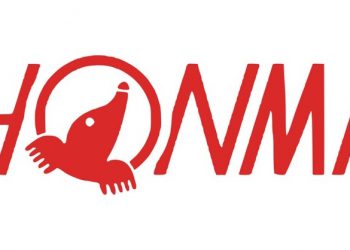On Saturday, Feb. 1, 2025, U.S. President Donald Trump announced a plan to slap steep tariffs on imports from key American trading partners – 25% on goods from Mexico and Canada and 10% on imports from China. His stated reason? To curb illegal immigration and drug trafficking.
Both Mexico and Canada managed to buy some time. After urgent phone calls with Trump on Feb. 3, their leaders each secured a one-month reprieve. But Mexico’s Claudia Sheinbaum and Canada’s Justin Trudeau also made it clear to their U.S. counterpart: If these tariffs go through, they’ll hit back with their own trade restrictions. The world is watching the opening moves of what could become another costly trade war.
As a professor of economics, I can explain why this poses significant risks to the U.S. economy and American consumers. Economic theory suggests that tariffs distort market efficiency, raising production costs while limiting consumer choice and increasing prices.
Who really pays for tariffs?
While politicians often frame tariffs as a way to punish other countries, they actually hit domestic consumers and businesses hardest. Whether they’re facing higher grocery bills or disruptions in manufacturing, Americans will feel the strain.
When tariffs are imposed, companies must either absorb the additional costs – cutting into profits and potentially threatening jobs – or pass these costs to consumers through higher prices. Small businesses operating on thin profit margins are particularly vulnerable, as many lack the resources to quickly switch suppliers.
Tariffs trigger costly retaliation
Worse yet, such measures commonly set off a cycle of retaliation. During past trade disputes involving the U.S., affected nations have responded with counter-tariffs on American products, including textiles, steel and agricultural goods. Such retaliatory efforts have led to sharp declines in U.S. exports.
During the first Trump administration, for example, China imposed retaliatory tariffs on U.S. agricultural exports. As a result, the U.S. farmers lost billions of dollars, and the U.S. spent billions in government aid to offset those losses. China has already issued new tariffs on imports of U.S. goods and export controls on some of its exports to the U.S. to retaliate for Trump’s current move.
History also shows that trade wars are self-defeating. The Smoot-Hawley Tariff Act of 1930, which imposed tariffs on over 20,000 imported goods, prompted swift retaliation from trading partners and contributed to deepening the Great Depression.
Modern trade wars have other consequences
Modern trade wars hit closer to home than most Americans realize. The recent tariff threat against Colombia reveals why. In 2023, Colombian farmers supplied US$1.14 billion worth of fresh-cut flowers to U.S. florists. In a near-crisis that lasted a weekend, Trump threatened to slap steep tariffs on the South American nation, right when flower shops across America were stocking up for one of their busiest seasons: Valentine’s Day.
The same tariffs would have hit Colombian coffee too, affecting everything from neighborhood cafes to grocery store prices. This shows how modern trade disputes can instantly disrupt the everyday purchases Americans make.
Other key trading partners, including the European Union, have also come into the crosshairs. On Jan. 30, 2025, the president issued a stark warning to Brazil, Russia, India, China and South Africa – the so-called BRICS nations – threatening 100% tariffs if they continued efforts to reduce reliance on the U.S. dollar as their reserve currency.
These threats can do more than alienate strategic partners; they risk accelerating dedollarization – pushing nations to develop alternative financial systems that weaken U.S. influence in global trade.
A more effective approach
Beyond causing immediate economic pain, constant tariff threats risk damaging America’s credibility as a reliable trading partner. The U.S. helped establish the rules-based international trading system, but regular tariff threats erode global trust and push trading partners to seek alternatives to the U.S. market.
The reality is clear: No country in the modern era has successfully used tariffs to grow its economy or improve the well-being of its people. The countries that are most dependent on tariff revenues for their national budgets are among the world’s poorest and least developed economies.
I believe the path to maintaining America’s economic leadership lies in embracing a smarter, more strategic trade policy – one that builds alliances instead of breaking them. A strategy that prioritizes negotiation, fosters innovation and enhances competitiveness – and that doesn’t rely on protectionist tactics more often used by developing nations – would strengthen cooperation and stability, ensuring long-term economic prosperity.
![]()
Bedassa Tadesse does not work for, consult, own shares in or receive funding from any company or organization that would benefit from this article, and has disclosed no relevant affiliations beyond their academic appointment.













